Your child’s behaviour is especially difficult and you’ve tried to coach them, but nothing is working. Your child won’t listen despite using every parenting strategy you can think of. This positive discipline technique is the foundation for everything. Find out why this particular positive parenting strategy works so well.
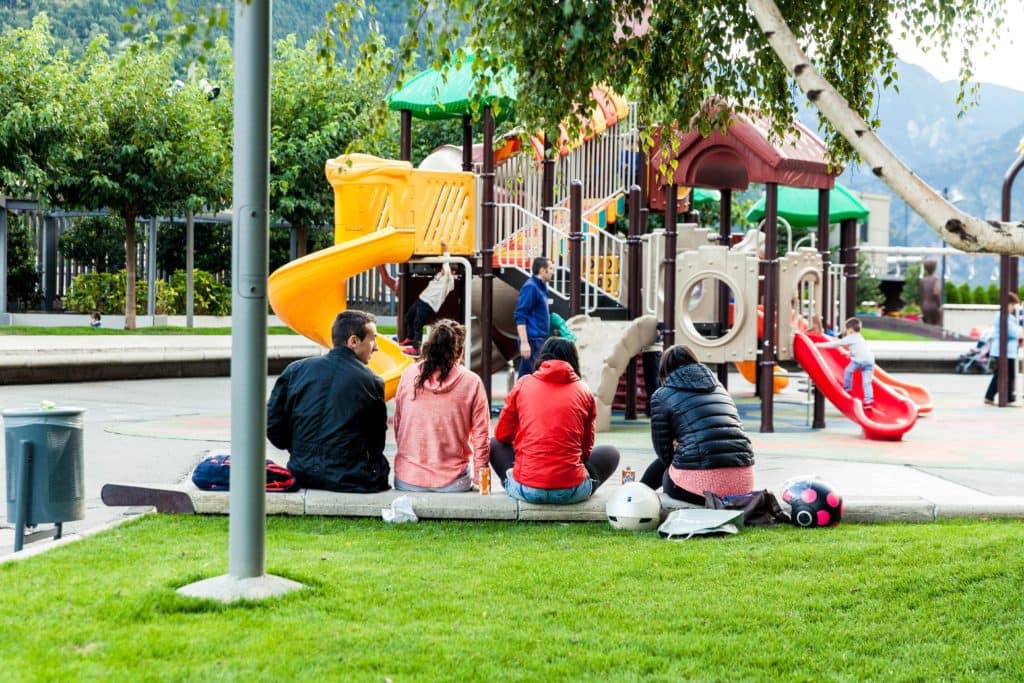
It wasn’t going to be a long road trip and I had prepared so well.
Before we left, I took my kids to the playground near the hotel.
I urged them to run a lot.
By the time we hit the van, they had played, climbed, and of course, ran. I had them fed and they’d gone to the bathroom too.
Fifteen minutes into our three-hour drive, my daughter started acting out…
It started with screaming.
“I. WANT. TO. BE. HOME.”
Each word was punctuated and shrill.
I had tried to reason with her. “We will be home shortly. Just close your eyes and the trip will be over faster.”
When that didn’t work, I tried empathy. “You’re frustrated. I know. Waiting takes a lot of patience.”
Related reading: Why You Shouldn’t Punish Tantrums and What You Can Do Instead
But, she was past the point where empathy or logic did anything.
The more I ignored her, the more she pushed back.
I breathed deeply and tried to imagine yoga class.
“Inhale – let, exhale go,” I said to myself.
She flung one shoe. Then the other.
I no sooner spun my head around than I saw her hitting my brother. With that, I pulled to the side of the road and took her out of the car.
My skin was flushed because my heart rate was so high.
I wanted to shake some sense into her. In fact, it took everything in me not to shake sense in her I was that mad.
As I waited for her cooperation, I held her hands and choked back my frustration as best I could. After what felt like an eternity, she was ready to go back to the car.
Related reading: Stop Yelling at Your Kids Using One Simple Strategy
My mom offered to take my place in the driver’s seat and I made my way to the back of the van.
Disclaimer: This post contains affiliate links. The price you pay is the same. However, I receive a small commission.
This positive discipline technique is foundational
Wedged between two booster seats, I sat with my jaw clenched.
I forced a smile. My almost-four-year-old cracked a potty joke.
The tension in my daughter’s face released as she giggled. That’s when I decided to join in too. I leaned over and whispered a joke in my daughter’s ear, then my son’s.
There was a little more laughter.
Quickly, it turned into an ongoing rotation of potty humour jokes and laughter from all of us. In no time, it was as though my daughter’s challenging behaviour had never happened.
The last hour and a half of our drive went off without a hitch.
I’ve tried distraction techniques and other forms of positive discipline before, but this was different. Something compelled my daughter to behave and it wasn’t a simple slight of hand.
So what happened? What was the positive discipline technique that changed her behaviour?
Connection. It was connecting with my daughter that changed everything that day. It was a combination of me being present with her and being playful that motivated my daughter to cooperate.
Related reading: The Best Way to Improve Your Child’s Most Difficult Behaviour
When I reflected back on the day, I realized I had barely paid any attention to my oldest child. First, I filled the suitcases with wet bathing suits and well-worn clothes. Then, I brought the kids to a park and shooed them away from me so they could burn off steam. And when we got into the van, I told her I couldn’t hear her because she was in the back row.
Even though I thought I had done everything right, she felt disconnected from me.
This is why connection foundational to all positive discipline
According to family therapist, Susan Stiffelman children are hardwired to behave better when they feel connected to us. Their attachment to us fuels their cooperation.
From an evolutionary psychological perspective, it makes perfect sense. If a stranger asks a child to come with him, the child won’t want to.
If you think back to your own childhood, you likely gave a substitute teacher or two a run for their money when they entered into your class. The truth is, kids will comply less when they don’t have a relationship with the adult in charge.
In truth, as adults, we operate similarly.
Stiffelman explains that, when someone we don’t like makes a request of us, we are likely to decline. For example, if our loud, annoying neighbour asks us to bring in his garbage cans while he is away, we’ll likely say no. However, if our very best friend asks us to drive one hour each way to do something for her, we are more likely to say yes.
When a child doesn’t feel connected to the person in charge, discipline becomes more challenging. The adult in charge may default to treats and bribes to get better behaviour. However, research shows that these methods work only in the short term at best. When these methods are used over time children are more likely to be rebellious or only comply in the presence of the threat.
Related reading: The best and worst consequences for moral development
Positive discipline: Simple ways to connect every day
Connection to fuel cooperation can take on many forms. Obviously, when a parent is driving she doesn’t typically have the option to climb to the back and have someone else drive. Here are some other basic scenarios to connect with your child to improve listening and behaviour.
- Offer your child ten minutes a day to do whatever he would like with you. In her book, Peaceful Parent Happy Siblings, Dr. Laura Markham talks about the value of ‘preventative maintenance.’ She suggests offering kids a minimum of ten minutes a day to do whatever the child likes. This could be playing catch outside, colour in a colouring book or play dolls. It’s entirely up to them.
- Before asking her to clean, appreciate what she’s doing. Talk to her about what you see or how well she’s set up her toys, then tell her it’s time to clean up.
- Snuggle for five minutes in bed, then get a start on the day.
- When road trips or long drives get tough, tell stories from when your kids were babies or when they were younger.
- Before bedtime, grab a pile of books, get under a blanket on the couch and read.
- Ditch your phone, get them away from the tablet or TV and get outside. Go to the park, play catch, or draw a hopscotch.
The drive back that day started off terribly. But when I was able to pull over the van and sit between my two kids, the ride was easy. When we connect with our kids and then make requests of them, they are more motivated to cooperate.
Like this post? Click on the image below to pin it for later!
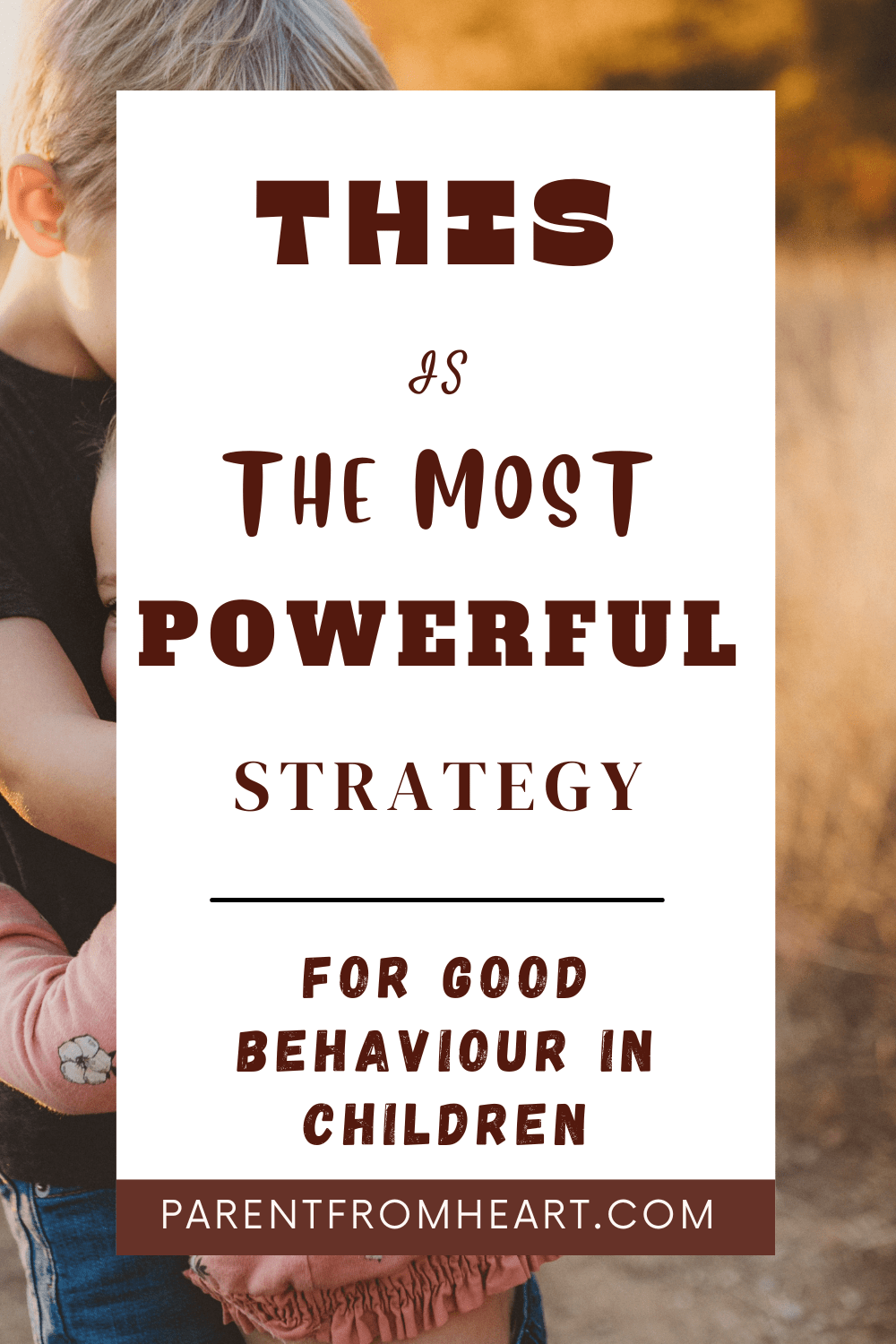







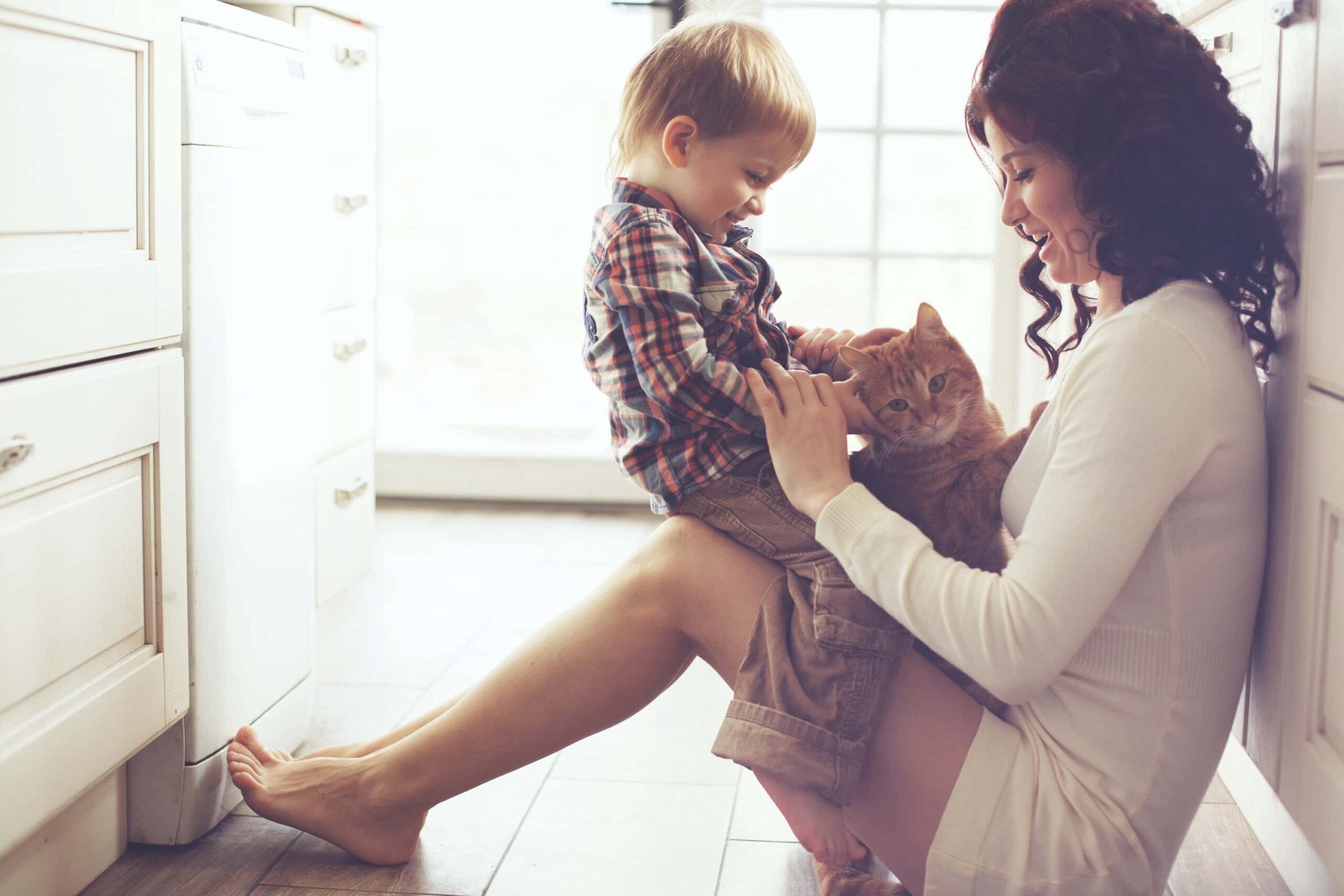
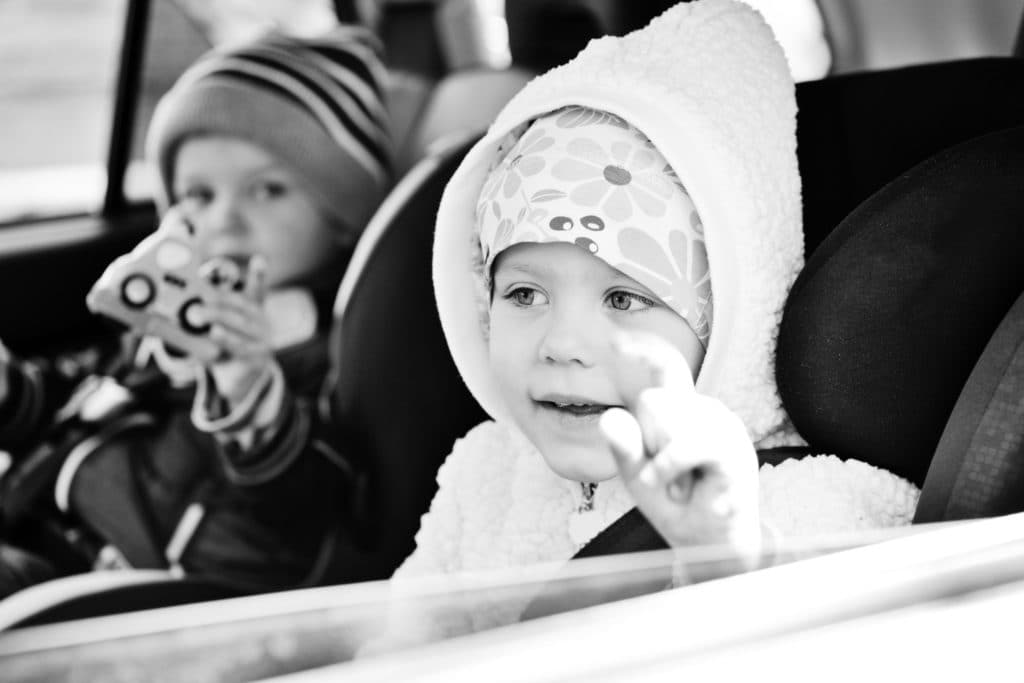

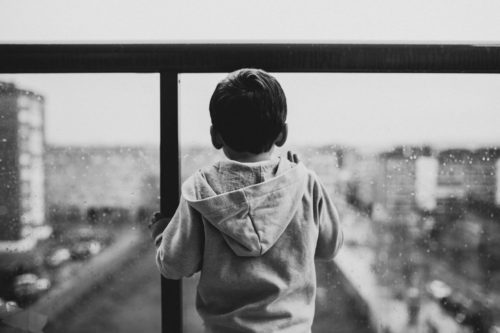
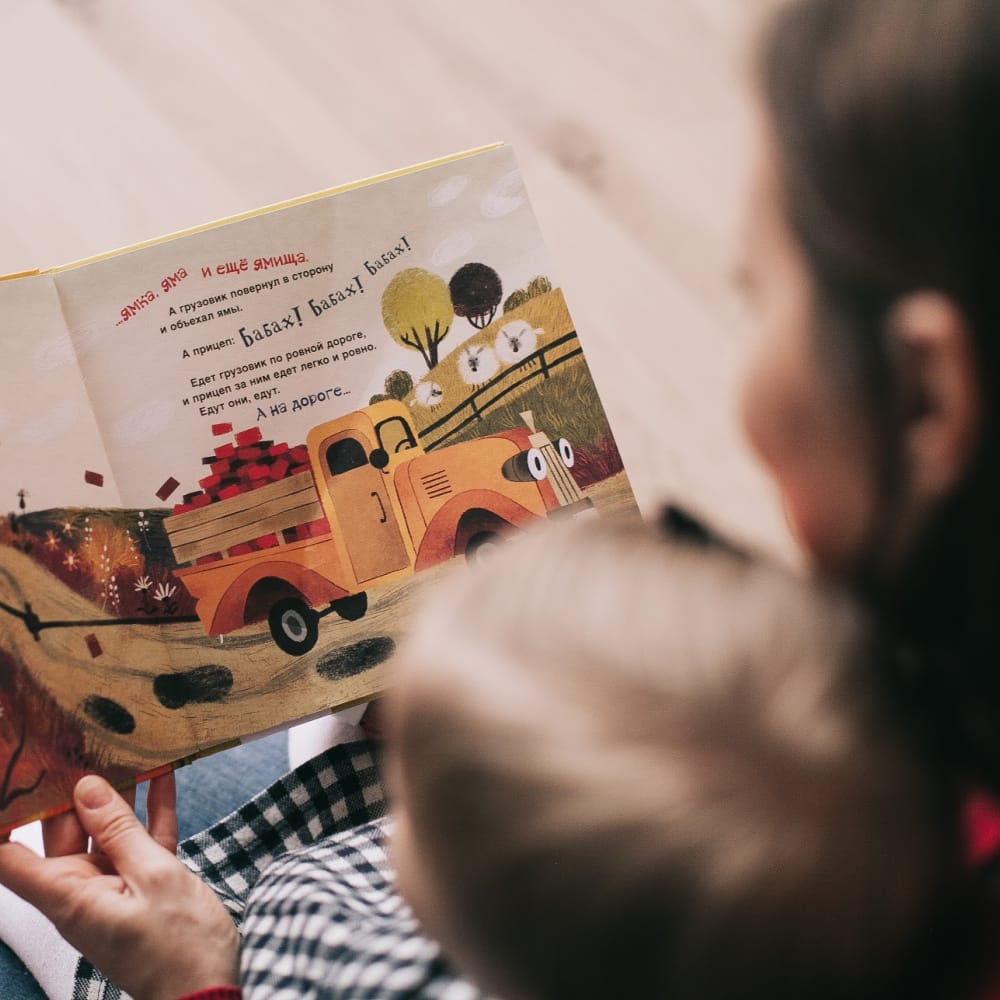
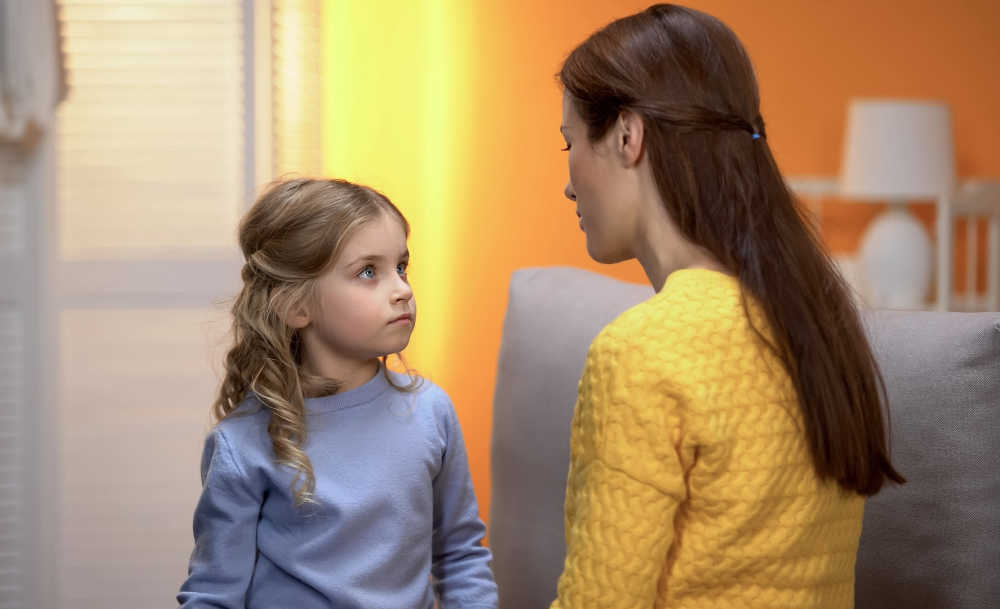
I have really struggled with this concept as well. My biggest hesitation with all positive discipline is that my children will act out more to get more connection time with mom. Any experience with that?
This is an excellent question. Kids most certainly can act out to get more attention from their parents. However, children also are motivated to do right. When a child, for instance, hits his brother, he will see his parent console his brother and also experience his parent’s disappointment in his behaviour. Moreover, connecting is still apart of discipline. If my son has hit his brother, I will hold him and we will talk about how next time he is to say he’s frustrated or ask for help.
Positive Discipline is definitely challenging. It forces us to take a step back and evaluate what’s going on with our child (is she well fed; could she be tired; have I been paying attention to her; what’s going on) before we react. But once this because habit, our children start responding so well.
Is there room for Grandparents to participate with the parents in this. I guess it would be Grandparenting from the heart.? I believe my adult children are using this method of parenting I would like to be as supportive as I can. I also would like my Grandchildren to be able to feel more comfortable with consistency in supervisor style when I have them with me. This is not how I was raised but I want to learn. What advice do you have for this old dog.
There absolutely is loads of room to grandparent from the heart. Your children and grandchildren are so fortunate to have your support.